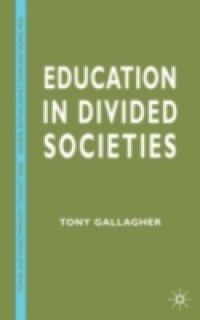The traditional role of education was to promote social integration, but there has been increasing recognition that most, if not all, societies contain significant social and ethnic divisions. Schooling systems have responded in a variety of ways, but it is unclear which type of system best promotes positive inter-community relations. Education in Divided Societies examines the experience of a number of different systems, including common school systems used in the United States and Britain, federalized education in a number of the most diverse European societies, and the effects of separate schools in Northern Ireland and apartheid South Africa. The book argues that the relationship between structure and outcomes is highly dependent on local circumstances and that no system guarantees predictable outcomes. Rather, it argues that school systems should promote processes of dialogue and that this is best achieved in circumstances where the relationships between different communities are as interconnected as possible.

